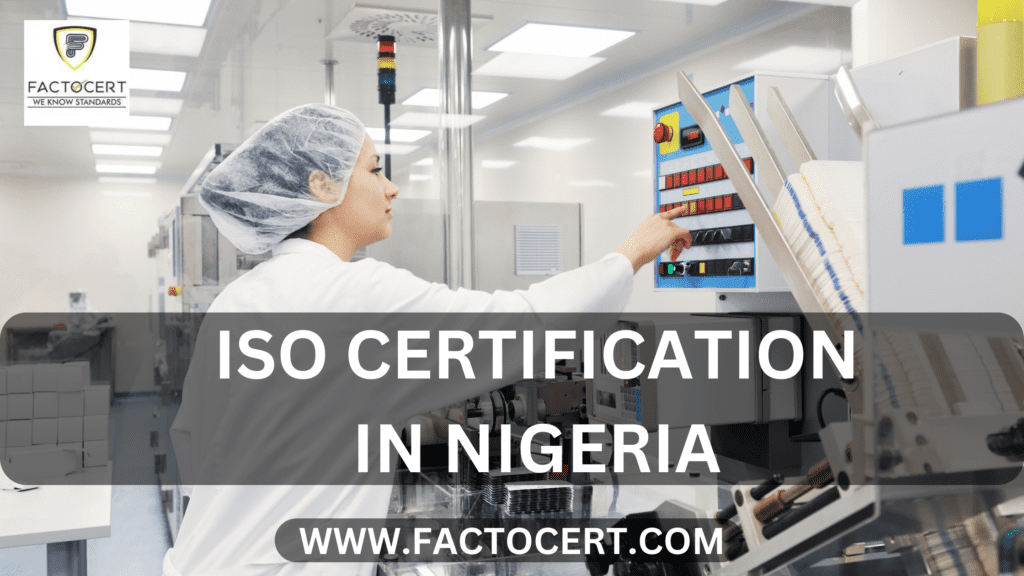ISO Certification in Nigeria, Medical device ISO Certification ensures compliance with strict quality and safety standards. It confirms that manufacturers adhere to set procedures, risk management, and biocompatibility evaluations, ensuring that medical devices are reliable, safe, and compliant with legal criteria for patient safety and access to a worldwide market.
Medical device producers in Nigeria should pursue ISO certification in Nigeria for a number of reasons:
Medical device manufacturers are encouraged to maintain consistent and high-quality production processes by obtaining ISO certification in Nigeria, specifically ISO 13485 (Medical Devices — Quality Management Systems). This is essential for guaranteeing the efficiency and safety of medical equipment, which has the potential to affect patient health directly.
- Regulatory Compliance: ISO standards are frequently in line with legal specifications in different nations. As in many other nations, regulatory organizations in Nigeria may call for or promote ISO certification in Nigeria as a requirement for the clearance of medical equipment. Regulatory approvals and market access may be facilitated by conforming to ISO standards.
- Market Access: The ISO seal is respected all around the world. Nigerian medical device makers may find it simpler to enter foreign markets and engage in worldwide competition if they hold ISO certification. It exhibits a dedication to quality and safety, which is frequently a need for entering international markets.
- Customer Confidence: Customers’ confidence in the reliability and security of medical devices made by Nigerian manufacturers can be increased through ISO certification. Healthcare professionals and end users are more likely to trust and select products that have received international certification.
- Operational Effectiveness: Adopting ISO standards helps increase operational effectiveness, cut down on waste, and better utilize resources. Cost reductions and increased market competitiveness may result from this.
What type of ISO certification can medical equipment in Nigeria apply for?
The ISO 13485 Certification in Nigeria outlines the requirements for a quality management system (QMS) that is particular to medical devices. It includes all phases of the product lifecycle, including design, production, installation, and maintenance.
A planned trip is necessary as part of the ISO certification process for medical devices to guarantee that a manufacturer’s quality management system (QMS) complies with the severe requirements imposed by the organization.
Here is a summary of the major steps in ISO Certification in Nigeria procedure:
- Preparation: Accurately examine your organization’s present QMS in light of the applicable ISO certification in Nigeria, particularly ISO 13485. Ascertain the support of high management for the certification procedure.
- Paperwork: Create a quality manual and the relevant forms, work instructions, and other paperwork to support your QMS. The basis for compliance will be these documents.
- Training: Make sure your workforce is appropriately trained
- so they are aware of the ISO standards, QMS requirements, and their responsibilities for upholding quality and compliance.
- Implement a thorough risk management procedure in accordance with ISO 14971 to identify, evaluate, and reduce risks related to your medical devices.
- Process Improvement: Examine and improve current procedures to bring them into compliance with ISO certification in Nigeria. Make sure that the documentation and execution are consistent.
- Establish methods for assessing and overseeing suppliers to make sure they adhere to legal and regulatory requirements.
- Internal Audits: Conduct routine internal audits to evaluate your QMS’s efficacy and pinpoint areas for development. Any non-conformities discovered during audits must be fixed.
- Schedule and conduct management reviews to assess the overall effectiveness of your QMS and base strategic decisions thereon.
- Documentation and Records: Keep accurate records of all activities and procedures linked to quality, ensuring that the documentation is readily available and current.
- Select a certification organization that is Certification and knowledgeable about ISO 13485 certification for medical equipment. Organize external audits with them.
- External Audits: Allow the certification body to evaluate your QMS against ISO standards through external audits. Address any observations or irregularities found during the audit.
- Continuous Improvement: Monitor and assess the performance of your QMS on a regular basis, taking corrective and preventive measures as needed to improve performance.
- Maintain Compliance: To ensure continued compliance with ISO standards, keep up with and improve your QMS after receiving ISO certification.
Why should Nigerians pick Factocert for ISO Certification?
The Best ISO Consultant in Nigeria is Factocert. With services for implementation, training, auditing, and registration, we offer the best ISO consultant service in Lagos, Abuja, Kano, Ibadan, Benin City, Port Harcourt, and other significant cities in Nigeria. We offer numerous ISO Standards, including ISO 14001, ISO 9001, ISO 13485, ISO 22000, ISO 17025, ISO 45001, and many more.
Selecting Factocert has many benefits. Their Certification guarantees respect and acclaim on a global scale. They have a group of qualified auditors who have an in-depth understanding of Nigerian business practices and ISO standards, ensuring accurate and sector-specific audits. In order to effortlessly guide enterprises through the certification process, Factocert places a high priority on customer support.
Conclusion:
Nigerian medical device producers need to remain knowledgeable about the precise regulatory standards and procedures that apply to their goods and markets. Businesses can help ensure that they meet all applicable compliance and certification standards by interacting with pertinent regulatory authorities and requesting advice from certifying bodies. The reputation, marketability, and competitiveness of medical equipment made in Nigeria—both locally and abroad—can be improved by obtaining ISO certification in Nigeria.
For more information visit: ISO Certification in Nigeria





